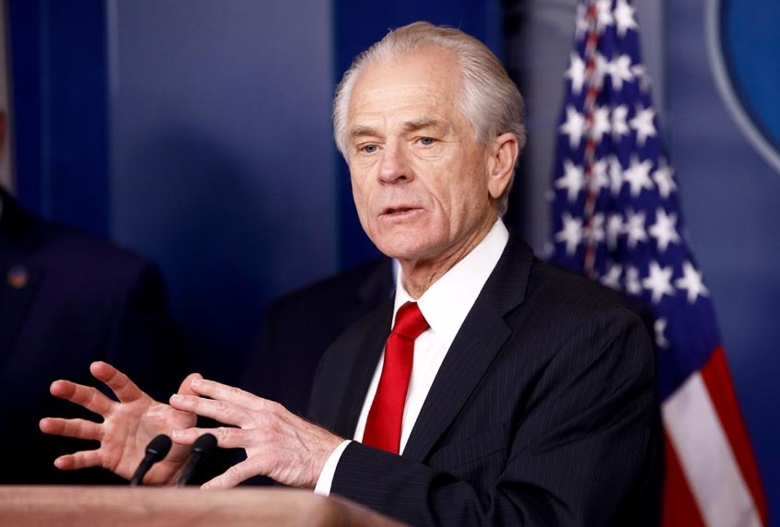The U.S. Supreme Court has declined to hear an appeal from Peter Navarro, a former White House trade adviser and close ally of Donald Trump, in his legal fight against the National Archives and Records Administration (NARA). Navarro sought to block NARA from obtaining emails sent from his private account during his time in the Trump administration. The Court’s decision, issued without explanation, upholds lower court rulings in favor of NARA, further solidifying the federal government’s authority over presidential records.
This marks the latest in a series of legal defeats for Navarro, whose efforts to shield his private correspondence have been met with stiff opposition from federal agencies and the judiciary.
In 2022, the Justice Department, acting on behalf of NARA, sued Navarro to compel the production of emails related to his work under the Trump administration. The emails, sent from Navarro’s private account, are considered government property under the Presidential Records Act (PRA), a law enacted in the aftermath of the Watergate scandal to ensure the preservation of official records for public accountability.
Navarro has admitted the emails belong to the government but has argued that the PRA does not give NARA the power to force former officials to turn over records. His appeal claimed that such enforcement actions invade privacy and set a dangerous precedent.
“While NARA has the authority over presidential records to maintain them, preserve them, and eventually make them available for the public, the [Presidential Records Act] explicitly does not confer in NARA the authority to invade a former employee’s privacy to force the compelled production of presidential records,” Navarro argued in his petition to the Supreme Court.
Navarro also claimed to be the only former government employee facing such legal action, describing the enforcement as “unprecedented.”
Navarro invoked his Fifth Amendment right against self-incrimination, citing an ongoing criminal case brought against him by the Justice Department. He argued that complying with NARA’s demands could harm his legal defense.
“Dr. Navarro sought immunity for the production of presidential records to avoid their use against him in the pending criminal matter,” his petition stated.
However, a three-judge panel from the D.C. Circuit Court of Appeals dismissed these claims, ruling there was no valid Fifth Amendment injury in returning government property.
“Navarro has failed to articulate any cognizable Fifth Amendment injury,” the court wrote. “Because the records were voluntarily created, and he has conceded both that they are in his possession and that they are the property of the United States, the action of physically returning the United States’ records to it will not implicate his [Fifth Amendment right].”
Navarro’s legal troubles extend beyond the email dispute. In 2023, he was convicted of contempt of Congress for refusing to comply with a subpoena from the January 6th committee investigating the Capitol riot. He served a four-month prison sentence, completing it in July.
Despite his legal woes, Navarro remains a prominent figure within Trump’s inner circle. Hours after his release from prison, he addressed the Republican National Convention, showcasing his loyalty to Trump and reaffirming his political relevance.
Navarro is expected to return to Washington in January as a trade policy adviser for Trump, who is preparing for another presidential campaign. This role signals Navarro’s continued influence in shaping Trump’s policy agenda, despite his mounting legal challenges.
The Supreme Court’s refusal to hear Navarro’s case effectively ends his efforts to shield the emails and underscores the authority of the Presidential Records Act. Legal experts view the Court’s decision as a reaffirmation of the PRA’s purpose: to preserve presidential records for historical accountability and public transparency.
The case also highlights the broader tension between former Trump officials and federal agencies over record-keeping and compliance with transparency laws. Navarro’s arguments, which sought to prioritize individual privacy over federal record-keeping requirements, failed to gain traction in the judiciary.
“This decision reinforces the principle that government records, even those created on private accounts, are the property of the American people,” one legal expert noted.
The Supreme Court’s rejection leaves little room for Navarro to continue fighting this case. NARA will likely proceed with recovering the emails, ensuring compliance with the PRA. Meanwhile, Navarro remains entangled in legal and political controversies that could define his post-White House career.
For Navarro and other former Trump officials, the case serves as a cautionary tale about the limits of privacy claims in disputes over government records. For the public, it reinforces the importance of transparency and accountability in preserving the integrity of presidential documents.
As the dust settles, attention turns to how NARA will handle this precedent and whether similar enforcement actions will follow for other former officials. For now, Navarro’s bid to keep his emails private has been firmly rejected, leaving him to face the consequences of his contentious tenure in government.


Idiot. Use of a personal email to do govt biz is illegal, has been for decades, everyone in govt knows this. There are reasons for this, first and foremost, this is the biz of the people and we deserve to know what you are doing. Now, let’s talk about Hillary.